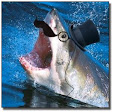Through the course of a school Football season we are told the stories of five families: the Mooneys, the Trubys, the Beltmeyers, the Clints, and the Vances. Each family has their own story and their own issues to deal with. The Mooneys are a Father and Son who are (in their own ways) dealing with the divorce/departure of the Mother in the family. The Trubys have grown sexually stale and ultimately start to think about infidelity. Mrs. Beltmeyer has a tight grip on her daughter Brandy, though not as tightly as she'd like; while Mrs. Clint seems to be the polar opposite of Mrs. Beltmeyer in terms of her daughter's interactions. Finally, the Vances are having that age old debate: to vasectomy or not to vasectomy. Through all of these stories, there is one connecting thread...the theme of sexuality and the Internet. Each family in their own way touches on how computing in the modern age has made us more accessible, while making us drift more apart. People have affairs through websites, children (and sometimes their parents) post provocative pictures of themselves on the Net for all to see, and Sexting is a second language. All modern times for modern problems, and Kultgen doesn't shy away from being able to transition from one story to another, even intermingling some of his threads into each other.
Which brings up the ultimate criticism when evaluating this book: it's about high time for Kultgen to either turn this novel into a franchise, or start with a new canvas and tell an epic story, particularly because this book seems to just end out of nowhere. This is still a good book, but again it ultimately pales in comparison with The Lie: A Novel, particularly because Men, Women & Children: A Novel feels it could go on for another fifty pages and finish out the school year. It most likely does so because the author has built a reputation for not letting any of his characters get out clean. This reputation pretty much leads the reader to automatically assume that by the end of the course of events, there will be blood on everyone's hands. Indeed, the final scene of the book is something akin to a P.T. Anderson film. It ends abruptly, and with a shock; which ultimately makes for a finished product that feels like it's leading to another installment.
Another difference between this book and the author's previous work is that there's actually a pair of characters you want to see make it out with a measure of happiness. The fact that he let them get away with the happiness they did is the only real aspect of this book that kicks the reader in the shin, otherwise everyone pretty much does what his previous protagonists have done. Hearts and minds are broken, sadness prevails over sentimentality, and in the end everyone continues to cope with themselves. Overall, it's par for the course; while at the same time it shows off just how versatile of an author Kultgen really is.
Up Next: Carte Blanche by Jeffrey Deaver


